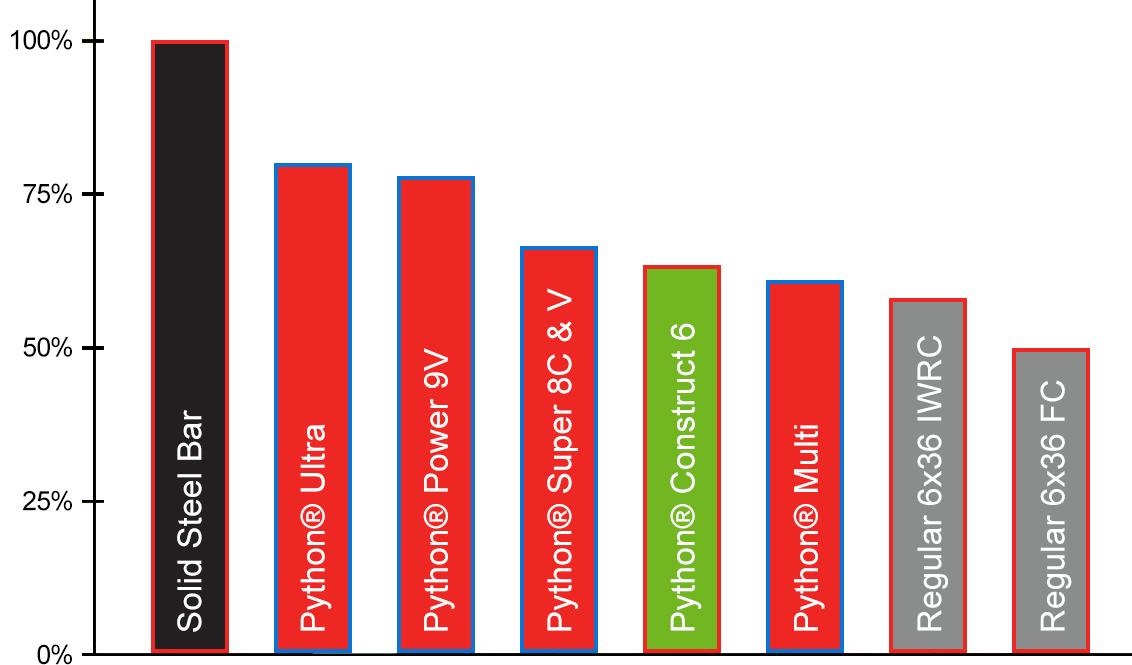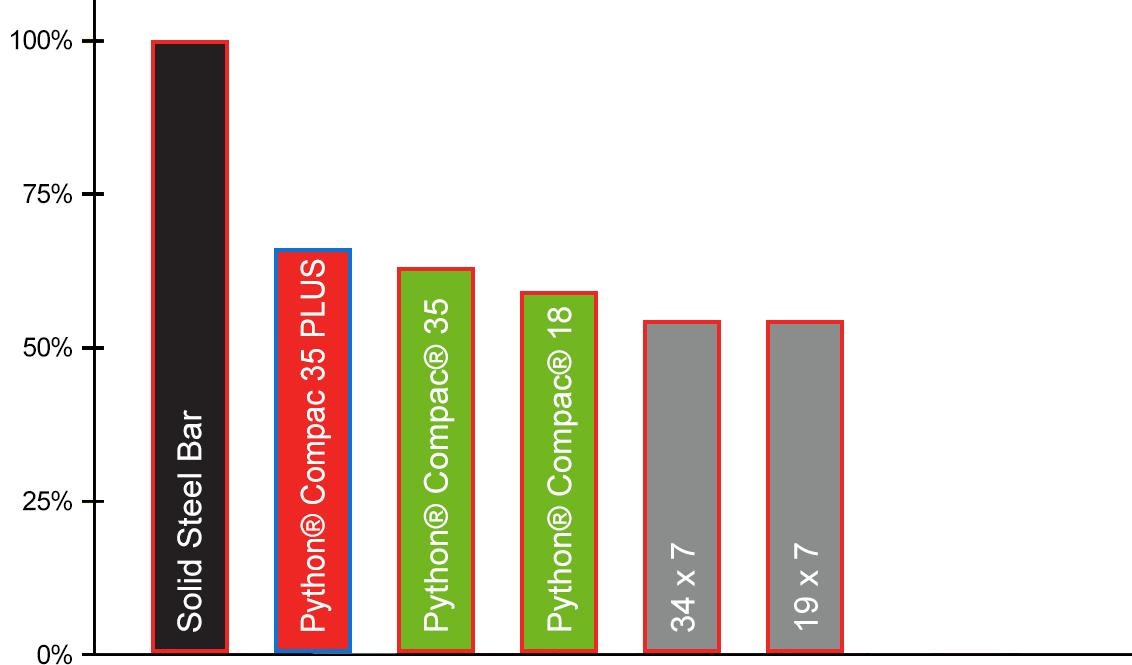The breaking strength of wire rope can be increased in two ways: either by increasing the wire material TENSILE STRENGTH or by increasing the rope’s FILL FACTOR.
Tensile StrengthThe wires of wire rope are made of high-carbon steel. These carbon steel wires come in various grades. Wire ropes are usually made of Extra Improved Plow Steel (EIPS) or Extra Extra Improved Plow Steel (EEIPS) which roughly equivalents to a wire tensile strength of 1960N/mm² and 2160N/mm². As one can see from the tables, the difference in the rope’s breaking strengths by increasing the material tensile strength is only about 10%. Fill FactorIn order to further increase the breaking strength of wire rope one has to increase the rope’s fill factor. The fill factor measures the metallic cross section of a rope and compares this with the circumscribed area given by the rope diameter. Traditional rope constructions ‘fill’ the rope diameter only up to about 58% with steel. Python® and Compac® wire rope ‘fill’ the rope diameter up to 80% with steel. That is an metallic increase of about 38% which results in a similar increase in rope strength. Two methods can be employed: selecting a different rope CONSTRUCTION or COMPACTING/DIE DRAWING the rope/strands. Many high strength rope constructions use both methods at the same time. |

Fill or Density Factor of different rope constructions
|




